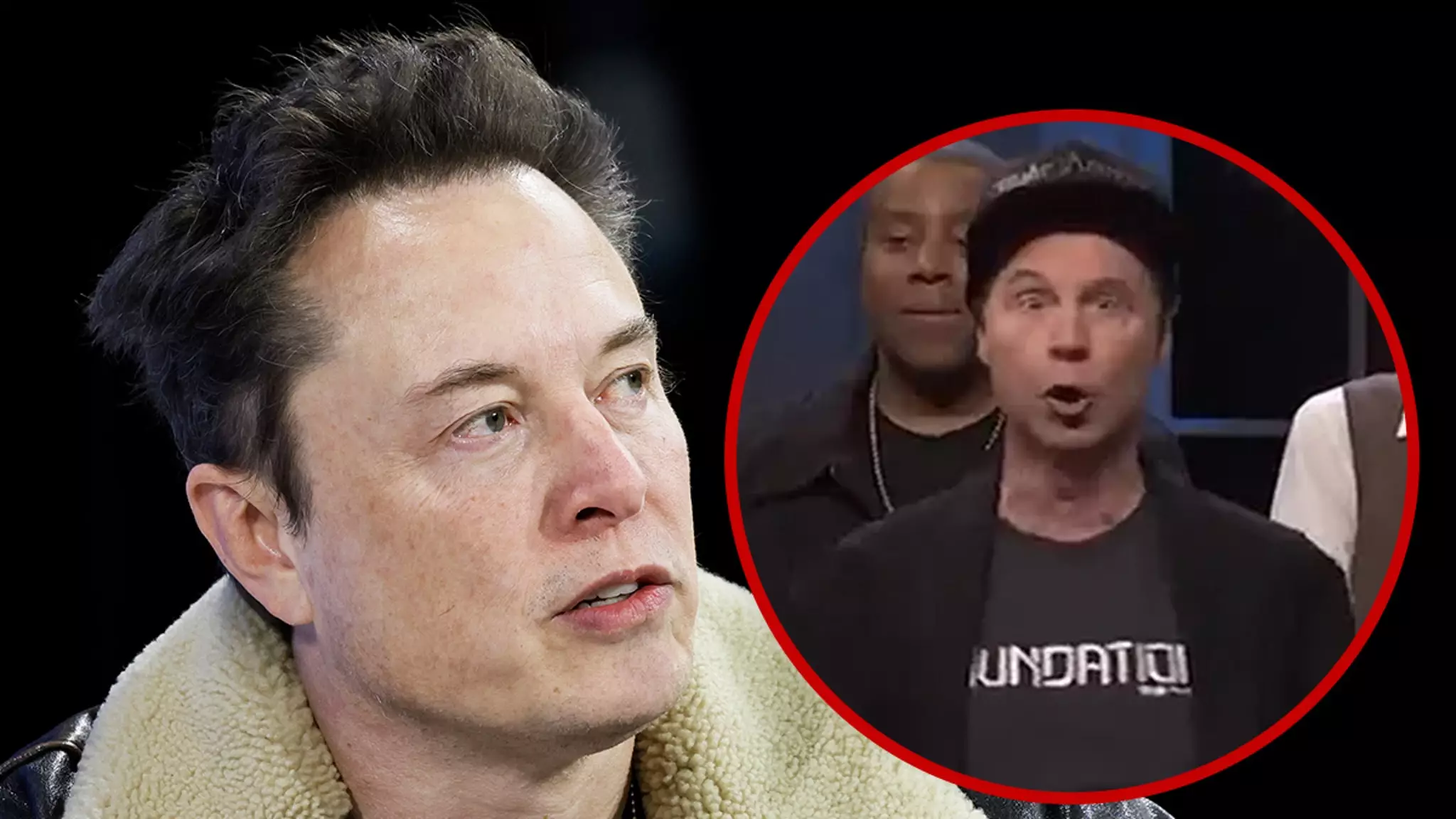The iconic sketch show “Saturday Night Live” (SNL) is no stranger to political humor, often using its platform to comment on contemporary issues and influential figures. Recently, the show drew attention for its cold open featuring an energetic impersonation of Elon Musk by comedian Dana Carvey. However, the exuberance of the cast quickly turned sour for Musk, who expressed concern over what he perceived as sour grapes from the comedians, particularly about last year’s presidential election.
During the skit, cast members, led by Kenan Thompson, touted their loyalty to the former president, Donald Trump. This sort of playful banter is typical of SNL’s approach, yet it was their mock seriousness and overt mockery that seemed to strike a nerve with Musk. The setting was set for comedic relief, but instead, it became a stage for underlying tensions that exist in today’s political climate.
The atmosphere surrounding the performance was charged with political undertones. Carvey, while impersonating Musk, referenced the exploding SpaceX rockets and delivered a series of comical dance moves mimicking the tech mogul’s public persona. While this might have seemed innocuous to some, Musk’s response unfolded a deeper narrative about political allegiances and the role of satire in a divided society.
For many, parody and impersonation are commonplace forms of expression in comedy, but Musk’s disdain for the cast came largely from the context in which it unfolded. His frustration appeared to stem not just from the depiction itself but from the emotional investment the cast displayed toward their political affiliations. Musk found humorous contrast in what he perceived as their bitterness over Trump’s triumph in the election—as a staunch supporter of Trump, he viewed their performance as an unoriginal attempt at mockery fueled by their disappointment.
This incident underscores a larger issue: the intersection of comedy and politics amid a polarized environment. As political tensions escalate, comedians and satirists often find themselves either inadvertently deepening divides or attempting to bridge them through humor. Musk’s response indicated that even figures as influential as him cannot escape the ramifications of a deeply fragmented society.
Moreover, Musk’s identification as a “Secretary of Cost-Cutting” hints at the kinds of roles he might occupy in future Trump administrations, suggesting that his involvement in politics may further fuel parody and impersonation at SNL. Given the trajectory Musk has taken on the campaign front, one can only anticipate more comedic portrayals that explore the complexities of his character and alliance.
With elections generating a never-ending stream of satire, the door is wide open for heightened impersonations of both Musk and Trump in the coming years. While fans may revel in the slapstick portrayals, figures like Musk turn into living caricatures, caught between their public personas and private beliefs. The question remains: will they continue to engage with creators, or will they retreat further into public retaliation and critique, as Musk has done?
In this evolving landscape, it is essential to recognize that comedy is more than just entertainment; it serves as a mirror reflecting society’s sentiments. As the political saga unfolds, one can only watch with fascination as the comedy, critique, and chaos continue to intertwine.

